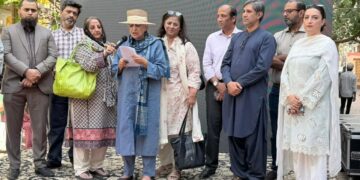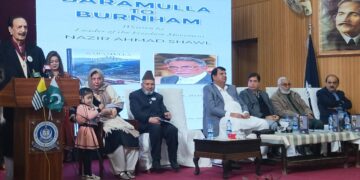BY : Burhanuddin Ali Akbar.
Karachi : Social media has rapidly transformed Pakistan's political landscape, creating new avenues for public engagement, transparency, and accountability. In recent years, platforms like Twitter, Facebook, and Instagram have evolved from mere social tools to powerful instruments for political discourse, advocacy, and mobilization in Pakistan. Political parties, leaders, and activists increasingly use these channels to reach citizens, present their ideologies, and foster support. One of the most significant impacts of social media on Pakistani politics is the way it has democratized access to information. Traditional media, which was previously the primary source of news, is now complemented or even challenged by real-time updates on social media platforms. This shift has enabled the public, especially the youth, to become more politically aware and engaged. Social media has made it easier to question policies, call for reform, and pressure leaders, thereby cultivating a more informed and active citizenry. Social media’s reach has also enabled political leaders to bypass mainstream media and connect directly with the public. Former Prime Minister Imran Khan, for instance, has harnessed platforms like Twitter to broadcast his stance and communicate his policies. Political parties have learned to leverage these platforms to gain followers, organize campaigns, and counter opposition narratives effectively. However, the rise of social media has also sparked concerns. The spread of misinformation, fake news, and hate speech is a growing issue, often leading to political polarization. Additionally, the government has introduced laws to regulate online content, sparking debates about freedom of speech and censorship.




















